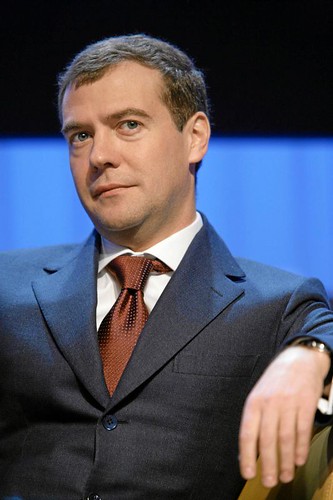The age-old quip tells us: “History always repeats itself.” But when is history allowed the opportunity to repeat itself? In other words, when can countries be forgiven for painful historical events and truly move on?
WWII aggressors Germany and Japan are still paying their dues over sixty years later. Although much has been forgiven, both are still regarded with a degree of contempt and suspicion by their neighbors.
Germany’s post WWII experience has been slightly easier than that of Japan in this regard, namely because of EU integration and the Cold War. Western Europe, which was ravaged twice by German expansionism in a span of just over two decades, was rightly concerned after the war about containing Germany.
To that end, ambitious officials created the European Coal and Steel Community in 1950. The main aim of the new supranational entity was to take these two precious commodities, which are essential for war, out of Germany’s (by then Western Germany) hands and put them in the joint control of the community’s six participants: France, Germany, the Netherlands, Belgium, Luxembourg, and Italy.
The ECSC then progressed into the European Economic Community with the 1957 Treaty of Rome, further integrating the economy of Western Germany with much of the rest of Western Europe. This was a further check on the country’s ambitions.
Economic collaboration was also backed up by security cooperation in the form of NATO. A popular motto for the mutual security agreement at its inception in 1949 was: “Keep the Americans in, the Germans down, and the Soviets out.” As a result, Western Germany was devoid of a fully sovereign military, and the Soviet threat helped convince the U.S. to station troops in the country for an indefinite period of time.
These two initiatives helped allay European suspicion of Germany, and allowed its former, bitter enemy France to seek rapprochement. The two countries signed the Elysee Treaty in 1963, pledging alliance between the two countries. Although this did not stop some from being frightened about the reunification of Germany in the early 1990s, now, popular contempt for Germany is an exception. Many on the continent, however, still fear and or envy its economic might.
Germany’s Nazi past still limits popular and governmental support for committing German troops abroad. Deploying troops in the Balkans in 1990 was a big step, but Germans and others are still extremely wary of doing so—as shown in the rancorous political debate over the country’s current NATO commitment in Afghanistan.
Although much of Germany’s criticism is self-inflicted, Japan, on the other hand, is still routinely pressured by its neighbors, namely China and South Korea, to apologize for its war crimes. This is in part because of the Japanese-right’s stubborn attempts to whitewash its WW2 history from school textbooks and former Prime Minister Koizumi’s visits to the Yasakuni Shrine, which honors WWII dead, including war criminals.
Although Koizumi’s successor, Shinzo Abe, has yet to visit the controversial shrine, his nascent administration has pledged to make Japan a “beautiful country” and in doing so put its WWII guilt to rest. The constitution, largely written by American “new-dealers” after WWII, lies in his way.
Article nine of that document dictates that Japan cannot wield an army, only a self-defense force. However, Abe has committed self-defense forces to Iraq for reconstruction efforts, and the Defense Department was recently promoted to a cabinet-level department—much to the dismay of its neighbors.
Japan’s historical revisionism is partly to blame for frosty relations with its Asian neighbors. Although China is certainly still bitter about Japan’s imperial excess, specifically the “rape of Nanking”, historical references are partially a guise for Chinese regional power concerns.
China fears a U.S. backed, powerful Japan wielding an army and perhaps nuclear weapons in the region. Allusion to Japanese war crimes is a sympathy-invoking façade for unease about Japan’s potential threat to China’s hegemonic status in the region
So what will it take for these countries and others to forgive and forget? It is unlikely that those countries afflicted by WWII abuses will ever forget, but they may forgive.
Those born well after WWII will not have the chance to forget, they never experienced the horrors or national suspicions caused by that war. Consequently, post WWII generations, especially the “Euro-generation” in Europe, are unlikely to invoke WWII gripes too often.
Historical grievances, however, are still alive and well in many parts of Europe, especially in the East. In general, much of Central and Eastern Europe is expectedly anxious about an increasingly bellicose Russia, and still bitter about Soviet post-war occupation.
Yet Poland, invaded by Germany and Russia numerous times, seems the most resentful of its troubled past, recently using WWII era historical references to defend its national interests.
Poland’s defense minister, Radek Sikorski, compared the German-Russian Baltic Sea pipeline, which conspicuously bypasses Poland, to the Molotov-Ribbentrop pact, the 1939 agreement between Germany and Russia to split up Polish territory between them.
And in defense of his country’s unwillingness to accept a diminished voting status in the EU, an electoral framework based on population, Polish Prime Minister Lech Kacynski declared, “"If Poland had not had to live through the years of 1939-45, Poland would today be looking at the demographics of a country of 66million."
History will always be used for political gain and people will attempt to use it to compare and contrast current events—witness the rampant analogy between Vietnam and Iraq. And historical abuses cannot be swept under the rug. Victims have a right to bring up painful historical events so that the ill-treatment does not happen again. But WWII-era cruelty should not disbar reformed countries such as Japan and Germany from becoming normal countries again.
Will these countries shrug off their historical straightjackets? As with most things in history, only time will tell.
Subscribe to:
Post Comments (Atom)





No comments:
Post a Comment